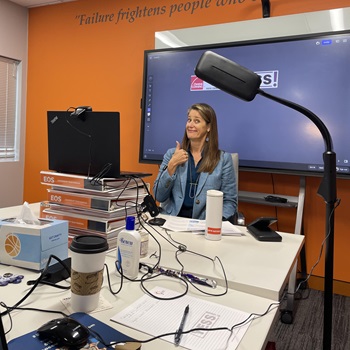In yesterday’s blog I shared practices that help build bridges in communication. Find more below!
3. Set clear expectations. No matter what your communication preference is, establishing clear expectations will increase your success. Everyone requires different amounts of information to produce results. Sharing key points, like deadlines and specific deliverables, will keep everyone accountable and on the same page. If someone needs more information, the door is now open for them to ask for what they need. Without a specific deadline (date and time), many people will prioritize as it makes sense to them – based on the relationships at hand, other competing priorities, or personal preferences. It sounds simple, but most of us are juggling so many priorities we don’t have space or perspective to clearly step outside our activities and determine what is truly most important when all are considered.
4. Check in if you see the other person reacting. If you embrace the philosophy that the meaning of your communication is the response you get, it’s important to respond according to how your message is being received. If the other person becomes defensive, angry, or silences themselves, that’s your cue to stop talking, check in, and genuinely inquire about what is happening at that moment with the other person. Asking what’s occurring for the other person will let them know you care. If you miss this opportunity, you may as well stop talking. Your message isn’t being received anyway. When you can pause and be curious, there is space for you to build a bridge, create common ground, and attempt your communication in a different way.
5. Beware of your automatic assumptions. I believe humans are “assumption-making machines.” When we are on autopilot, it’s easy to assume everyone else perceives the world as we do and understands the world the same way we do. That is rarely true, and recognizing this will encourage you to communicate more intentionally. We all need to check our assumptions when responding to others. If you find yourself reacting or becoming defensive, you have an opportunity to be vulnerable and share that with the other person while extending the opening to learn how to be better together. Silent resentment and frustration rarely lend themselves to close relationships or productivity. Saying “I don’t understand,” or “what I heard you say…” gives the other person the chance to reframe their communication. Although this requires vulnerability on your part, it’s absolutely worth it when building trust.
I have been teaching and studying communication for over 30 years and still learn new things every day. I believe communication is truly at the heart of everything we do. In any group of people, we have the opportunity to do amazing things – build a company, raise money, change the world- it’s all possible if we can effectively communicate.
Categories: Sue's Daily Blog


